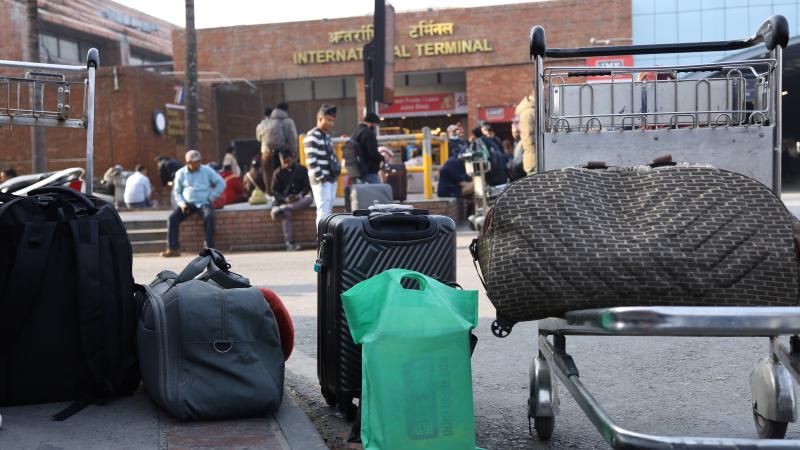House passes resolution with bipartisan support in opposition to DC allowing non-citizens to vote
The House also passed a bipartisan bill condemning the D.C. government's changes to criminal laws such as modifying sentencing guidelines.
The House on Thursday passed a resolution with bipartisan support disapproving of a District of Columbia measure to allow non-citizens to vote in local elections.
The D.C. measure was passed by the Democrat-led City Council this past fall.
The resolution in the GOP-controlled House passed with the support of 42 Democrats.
The final vote was 260-162, with all of the "no" votes coming from Democrat members.
Washington, D.C., has so-called "home rule," which allows residents to govern in local affairs. However, Congress reviews all legislation passed by the council before it can become law and retains authority over the District’s budget.
Republicans once again controlling the House was expected to result in added scrutiny.
The measure passed in the House reads: "This joint resolution nullifies the Local Resident Voting Rights Amendment Act of 2022, enacted by the council of the District of Columbia. The act allows non-citizens who meet residency and other requirements to vote in local elections in the district," read the resolution that passed."
In addition, the House also passed a bipartisan bill 250-173 opposing the D.C. government's changes to criminal laws such as modifying sentencing guidelines.
Thirty-one Democrats joined the GOP in voting for the resolution. Republicans have argued that sentencing reform is one of the reasons crime has spiked in major cities like D.C.
The council passed the bill in November 2022, but it was vetoed by Democrat Mayor Muriel Bowser, which resulted in the council overriding her executive veto.
"This joint resolution nullifies the Revised Criminal Code Act of 2022, enacted by the council of the District of Columbia (DC)," read the text of the resolution that passed. "The act makes a variety of changes to DC criminal laws, including by providing statutory definitions for various elements of criminal offenses, modifying sentencing guidelines and penalties, and expanding the right to a jury trial for certain misdemeanor crimes."
The bipartisan support could give either of the resolutions better odds of passing in the Democrat-led Senate, which is not expected to pass either. The bill need only a simple majority of votes, 51, to pass in the upper chamber.














